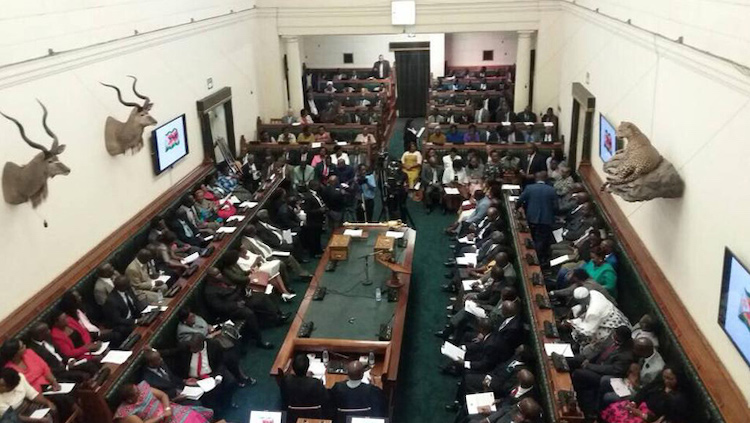By Farai Shawn Matiashe
MUTARE, Zimbabwe (IDN) — Cyberbullying and online sexual harassment are some dilemmas that young women trying to rise in Zimbabwe’s patriarchal and male-dominated political space face.
What started as a debate on the opposition party, Citizens Coalition for Change (CCC), led by young and charismatic politician Nelson Chamisa not having structures, ended up with CCC spokesperson Fadzayi Mahere fighting cyberbullying from the ruling party, Zanu PF sympathisers in courts. JAPANESE | PORTUGUESE | SWAHILI
Former editor of the State-owned newspaper, Sunday Mail, Edmund Kudzayi, threatened to release nude pictures of Mahere and her alleged married men.
Mahere’s lawyers later sued Kudzayi for defamation demanding $100 000 in damages at the High Court in Harare capital.
Her case replicates that of many women in Zimbabwean politics who are often called derogatory names and accused of having sex scandals with married men in an endeavour to silence them.
“Cyberbullying remains one of the reasons why women shun away from politics,” says Sitabile Dewa, an executive director at Women Academy for Leadership and Political Excellence, an organisation that advocates for women’s rights in politics.
“It has been used as a tool against women. Most women who occupy political leadership positions and those who aspire to take up leadership positions have had their personal information leaked online, their bodies shamed by their male counterparts to tarnish their image to citizens as a strategy to make them lose votes or withdraw from politics.”
Dewa says hate speech on social media platforms, including microblogging site Twitter, messaging platforms Facebook and WhatsApp, have also been used to push women away from politics.
Barbara Gwangwara Tanyanyiwa, a caretaker spokesperson for CCC Women Champions, says young women and most married women shun politics because of the ill-treatment of women in the country.
“Surprisingly, most male politicians including those that are our legislators, do not believe in 50/50 gender equality as they think it is giving women positions on a silver platter.”
“On the other hand, people are now taking politics as a career, so men will not let women take up positions they think should be filled by them.”
Linda Masarira, a human rights defender and president of an opposition party Labour, Economists and African Democrats (LEAD), has been called derogatory names on various social media platforms.
“What I have realised is that Zimbabweans are highly patriarchal,” she says.
“The rise of characters like me in the Zimbabwean political economy made a lot of men uncomfortable. I also learnt in my political journey that an opinionated woman is a woman that everyone wants to silence because the men themselves know the power that women possess and the only way to silence a woman’s voice is by speaking ill about their own livelihoods.”
To promote gender equality in Parliament, Zimbabwe’s Constitution adopted in 2013 introduced proportional representation in the Senate, and as of 2020, 48 per cent were women in the total of 80 senators.
After the 2018 general elections, female lawmakers constituted 34.57 per cent of Zimbabwe’s two houses of Parliament, the National Assembly and Senate, which have 350 seats.
‘Political climate to become more unfavourable for women in 2023.’
With just one year left before the country holds its harmonised elections slated for 2023, women in politics fear that the road will be bumpy for many young female politicians.
Women in politics in Zimbabwe also experience sexual harassment offline.
In May 2020, Cecilia Chimbiri, legislator Joanah Mamombe and Netsai Marova, three Zimbabwean activists, were abducted, allegedly sexually abused and tortured for demonstrating against the failure of the government to provide personal protective equipment during the Covid-19 pandemic.
Instead of the State investigating the matter and arresting the perpetrators, the trio were arrested and charged with faking abduction. To date, they are still fighting the charges in court.
“Political violence and sexual harassment have been used against women in politics. A lot of cases of politically motivated violence and sexual harassment have been recorded over the years, and this has and still is a reason why women fear politics,” says Dewa.
Tanyanyiwa says women need a non-violent environment and in 2023 they are not likely going to participate in their huge numbers.
“Heading towards 2023 elections I do not see the environment being favourable for women seeing the violence that is already being perpetrated by Zanu PF,” she says.
Dewa says as the nation heads toward the 2023 elections, the political environment is becoming volatile as political parties campaign across the country.
“Cases of politically motivated violence targeting women leaders including social media attacks targeting their personal lives. Women leaders and female activists face victimisation and harassment that is politically motivated. This results in fewer women being actively involved in politics as they fear for their lives and that of their families,” she says.
Is the new Data Protection Act going to protect women in politics?
Zimbabwe enacted the Data Protection Act, which also has aspects relating to cybersecurity and cybercrimes in December last year.
Some organisations that advocate for women’s rights in politics look up to the new Data Protection Act to protect them and to use it to sue those who bully them on social media.
To tackle cyberbullying, Dewa says, there is a need to raise awareness of the ills of cyberbullying.
She says women in politics should undergo cyber security training to strengthen their resilience against cyberbullying and equip them with knowledge on how to handle such incidents.
Dewa says if the political environment becomes conducive and violence-free, more women will be able to freely and actively participate in politics.
“It is the duty of political parties, civil society, government and other stakeholders to make sure that the political environment and conducive for women to take part in politics,” she says.
Tanyanyiwa says leaders of all political parties in the country should denounce cyberbullying. [IDN-InDepthNews – 24 July 2022]
Photo: Female lawmakers make up 34.57% of Zimbabwe’s Ninth Parliament. Credit: ZimFact




